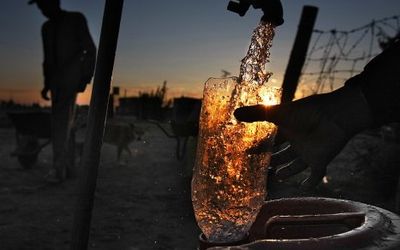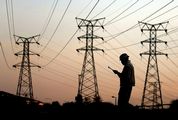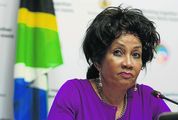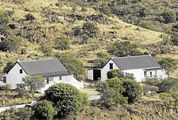Water, energy balance is all about planning
by Christine Colvin,
2014-03-20 05:28:18.0
THE theme for International Water Day on Saturday, "Water and Energy", draws into sharp focus the flashpoints between water and energy in South Africa. The links between water and energy will act as tipping points for our growth. Worldwide, about 10% of all energy production is used to pump water, and the effects of climate change are being felt first through water.
The recent misery of "wet coal" is the tip of the slag heap if we don’t get the balance right. As the farmers say, "If the floods don’t get you, the drought will." With floods inundating the north recently, it may be hard to imagine a drought is long overdue. But we are already operating at the limit of our assured water resources, and we have yet to experience the dry end of a water-constrained economy.
Cheap energy and reliable water resources are relegated to history in many parts of the world. Along with food, these resources are referred to as the "food-water-energy nexus". The balance is being skewed by four trends in the global economy: increasingly limited raw resources; growing demand; increasing uncertainty; and widening inequity. All of these threaten to destabilise our growth if not dealt with explicitly at the right scale in the much-anticipated meat on the bones of the National Development Plan (NDP).
South Africa has committed to a move towards renewable energy, and we have seen a huge expansion in investment in this sector. But we are still planning for a fossil-fuel lock-in for the medium term, as Finance Minister Pravin Gordhan assures us more coal-fired power and fracking will boost our energy security. Both these options will have long-term effects on our watersheds that far outweigh the temporary disruption of load shedding.
Coal fields located in the high rainfall water source areas of South Africa carry the highest risk of acid mine drainage. We have seen the Olifants catchment in Mpumalanga severely affected by more than a century of coal mining, which has resulted in water with the chemical properties of battery acid, dead ecosystems and contaminated farm land. This kind of mismanagement and externalising of the costs of production have contributed to undermining public trust in the mining industry. It has also compromised the water and food security of communities downstream.
Concern about poisoning the limited groundwater resources in the Karoo are a key constraint to fracking. The US and Europe have better-resourced environmental protection agencies and are still sitting with aquifers and land rendered unusable by fracking.
Let us be clear about fracking: it is thirsty and it is dirty. It is a fossil fuel that releases almost as much carbon into the atmosphere as coal-fired power. It requires a significant infrastructure investment from the taxpayer, and if lessons from our own mining are to go by, it will leave an expensive clean-up bill.
South Africa faces great difficulty in achieving energy and water security. But the NDP and our National Water Resource Strategy show that many of the fundamentals are in place: we understand the problem; we have the bare bones of a plan; we have policies and legislation that enable sustainable shifts to renewable energy and protection of water; we have committed resources to our plans.
A "high road" scenario for sustainable food, water and energy requires a new nexus for governance that must encompass a renegotiated alliance between business, the government and civil society. It also demands long-term, integrated planning that considers the water-food-energy nexus and some of the conflicts and trade-offs described above.
It is critical we reach consensus on the non negotiables that are the life support of our economy. In the past financial year, R8bn was committed for engineered water infrastructure. But dams can support water security only when fed by healthy catchments. We need explicit protection of the ecological infrastructure that feeds our engineered interventions.
Our water source areas and aquifers make up the ecological infrastructure that is essential for food and water security. We could never afford the energy and resources required to artificially engineer clean water provided by healthy catchments. These perennial services do not appear in our gross domestic product. This natural capital is not listed on the JSE. We have many choices supported by ingenuity and new technologies for an energy-secure South Africa. Let us ensure that the specifics of those choices allow us to achieve water and food security together, and protect what we cannot replace.
• Colvin is senior manager of the Freshwater Programme at WWF-SA.

Picture: THE TIMES
THE theme for International Water Day on Saturday, "Water and Energy", draws into sharp focus the flashpoints between water and energy in South Africa. The links between water and energy will act as tipping points for our growth. Worldwide, about 10% of all energy production is used to pump water, and the effects of climate change are being felt first through water.
The recent misery of "wet coal" is the tip of the slag heap if we don’t get the balance right. As the farmers say, "If the floods don’t get you, the drought will." With floods inundating the north recently, it may be hard to imagine a drought is long overdue. But we are already operating at the limit of our assured water resources, and we have yet to experience the dry end of a water-constrained economy.
Cheap energy and reliable water resources are relegated to history in many parts of the world. Along with food, these resources are referred to as the "food-water-energy nexus". The balance is being skewed by four trends in the global economy: increasingly limited raw resources; growing demand; increasing uncertainty; and widening inequity. All of these threaten to destabilise our growth if not dealt with explicitly at the right scale in the much-anticipated meat on the bones of the National Development Plan (NDP).
South Africa has committed to a move towards renewable energy, and we have seen a huge expansion in investment in this sector. But we are still planning for a fossil-fuel lock-in for the medium term, as Finance Minister Pravin Gordhan assures us more coal-fired power and fracking will boost our energy security. Both these options will have long-term effects on our watersheds that far outweigh the temporary disruption of load shedding.
Coal fields located in the high rainfall water source areas of South Africa carry the highest risk of acid mine drainage. We have seen the Olifants catchment in Mpumalanga severely affected by more than a century of coal mining, which has resulted in water with the chemical properties of battery acid, dead ecosystems and contaminated farm land. This kind of mismanagement and externalising of the costs of production have contributed to undermining public trust in the mining industry. It has also compromised the water and food security of communities downstream.
Concern about poisoning the limited groundwater resources in the Karoo are a key constraint to fracking. The US and Europe have better-resourced environmental protection agencies and are still sitting with aquifers and land rendered unusable by fracking.
Let us be clear about fracking: it is thirsty and it is dirty. It is a fossil fuel that releases almost as much carbon into the atmosphere as coal-fired power. It requires a significant infrastructure investment from the taxpayer, and if lessons from our own mining are to go by, it will leave an expensive clean-up bill.
South Africa faces great difficulty in achieving energy and water security. But the NDP and our National Water Resource Strategy show that many of the fundamentals are in place: we understand the problem; we have the bare bones of a plan; we have policies and legislation that enable sustainable shifts to renewable energy and protection of water; we have committed resources to our plans.
A "high road" scenario for sustainable food, water and energy requires a new nexus for governance that must encompass a renegotiated alliance between business, the government and civil society. It also demands long-term, integrated planning that considers the water-food-energy nexus and some of the conflicts and trade-offs described above.
It is critical we reach consensus on the non negotiables that are the life support of our economy. In the past financial year, R8bn was committed for engineered water infrastructure. But dams can support water security only when fed by healthy catchments. We need explicit protection of the ecological infrastructure that feeds our engineered interventions.
Our water source areas and aquifers make up the ecological infrastructure that is essential for food and water security. We could never afford the energy and resources required to artificially engineer clean water provided by healthy catchments. These perennial services do not appear in our gross domestic product. This natural capital is not listed on the JSE. We have many choices supported by ingenuity and new technologies for an energy-secure South Africa. Let us ensure that the specifics of those choices allow us to achieve water and food security together, and protect what we cannot replace.
• Colvin is senior manager of the Freshwater Programme at WWF-SA.




























Register/Login
Close XMy News
You can only set up or view personalised news headlines when you are logged in as a registered user. Thereafter you can choose the sectors of industry in which you are interested, and the latest articles from those sectors will display in this area of your console.
Login or Register.Top Stories
My Watchlist
You can only set up or view your share watchlist when you are logged in as a registered user. Thereafter you can select a list of companies and enter your share details to monitor their performance.
Login or Register.My Clippings
You can only clip articles when you are logged in as a registered user. Thereafter you can click on the "Read later" icon at the top of an article to save it to this area of your console, where you can return to read it at any time.
Login or Register.Change: -1.21%
Change: -1.31%
Change: -1.11%
Change: -1.12%
Change: -2.16%
Data supplied by Profile Data
Change: 0.00%
Change: 0.00%
Change: -1.21%
Change: 0.00%
Change: 0.00%
Data supplied by Profile Data
Change: -0.05%
Change: 0.01%
Change: 0.04%
Change: 0.09%
Change: -0.29%
Data supplied by Profile Data
Change: 0.00%
Change: 0.00%
Change: 0.00%
Change: 0.00%
Change: 0.00%
Data supplied by Profile Data